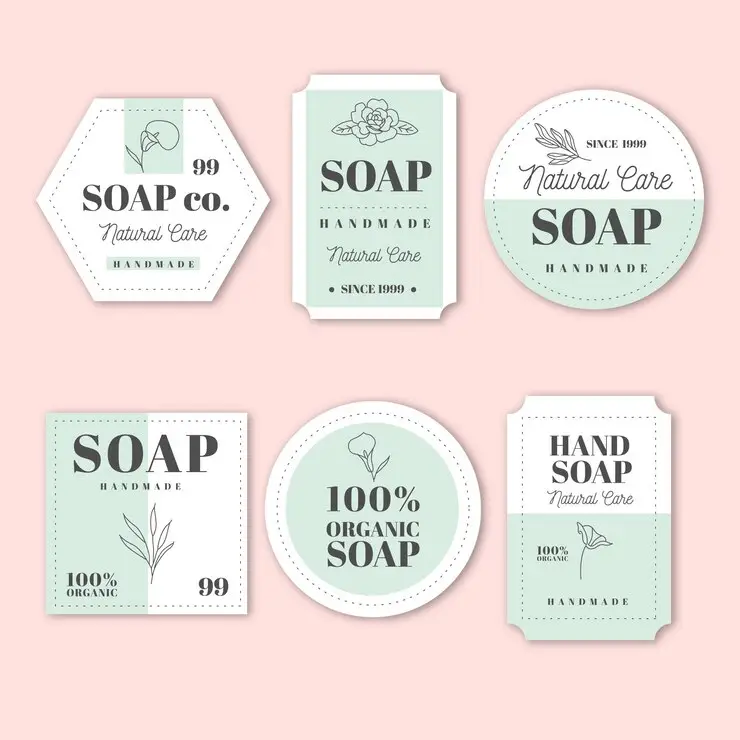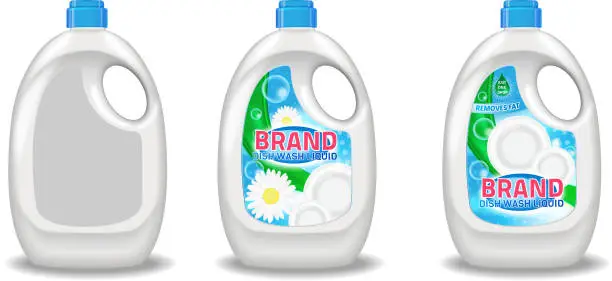
Barcode International is the best industry leader manufacturer for personal care labels.
We are the manufacturer for Personal Care Labels for more than 20 years in this industry. Barcode International delivers best quality Personal Care Labels as per the client needs.

Here’s a quick guide to demystify the jargon:
Ingredients for Personal Care Labels:
Scan for key ingredients. opt for products with natural extracts like aloe vera or chamomile for gentle care, and avoid harsh chemicals like sulfates and parabens.
Know Your Skin Type:
Labels often cater to specific skin types (dry, oily, sensitive). Choose products formulated for your skin’s needs to achieve the best results.

Look for Certifications for Personal Care Labels:
Seek out labels like ‘Cruelty-Free’, ‘Organic’, or ‘Vegan’ if these values align with your lifestyle and ethical considerations.
Usage Instructions:
Follow directions for optimal results. Overusing products can sometimes do more harm than good, so less can often be more.
Patch Test:
Especially if you have sensitive skin, perform a patch test before using new products extensively to avoid adverse reactions.
Remember, self-care isn’t just about products – it’s about nurturing yourself inside and out. Take time to find what works best for you, because you deserve to feel radiant in your skin.`
FMCG/Personal Care Labels Manufacturer
Personal Care Labels/Fast-Moving Consumer Goods (FMCG) are the everyday products we rely on for our daily needs, from toiletries to food items. While these products are convenient and essential, understanding their labels is crucial for making informed choices about what we consume and use. Here’s a comprehensive guide to decoding Personal Care labels:
1. Ingredients List:
The ingredients list is where transparency begins. It details what components make up the product, listed in descending order by quantity. Look out for:
Allergens:
Ingredients like nuts, gluten, or dairy that could trigger allergies.
Preservatives and Additives:
Chemicals used to extend shelf life or enhance flavor. Some consumers prefer products with fewer or natural preservatives.
2. Nutritional Information:
Found mainly on food and beverage labels, nutritional information provides insight into the product’s content:
Calories:
Total energy provided by the product.
Macronutrients:
Such as fats, carbohydrates, and proteins.
Vitamins and Minerals:
Some labels highlight essential nutrients present in the product.
3. Certifications and Seals:
Look for certifications that indicate adherence to specific standards or practices:
Organic:
Products grown without synthetic chemicals or GMOs.
Fair Trade:
Ensures fair wages and ethical practices in production.
Non-GMO:
Indicates the absence of genetically modified organisms.
4. Usage and Storage Instructions:
FMCG labels often include directions for optimal use and storage conditions:
Storage Temperature:
Some products need refrigeration to maintain freshness.
Expiry Dates:
Ensure products are consumed before the expiry date for safety and quality.
5. Environmental Impact:
Increasingly, consumers are looking for products with minimal environmental impact:
Recycling Information:
Guidelines on how to dispose of packaging responsibly.
Sustainability Claims:
Labels that promote sustainable practices in sourcing or manufacturing.
6. Safety Warnings:
Especially relevant for products like cleaning agents or cosmetics, safety warnings alert consumers to potential hazards:
Skin Sensitivity:
Products that may cause irritation, prompting users to perform patch tests.
Child Safety:
Warnings about choking hazards or harmful ingredients.
7. Brand Transparency:
Consumers today value brands that are transparent about their practices and sourcing:
Traceability:
Information on where ingredients are sourced.
Ethical Practices:
Commitments to fair labor practices and community engagement.
The Benefits and Importance of Personal Care FMCG Labels
In the fast-moving consumer goods (FMCG) industry, particularly within the realm of personal care products, labels serve a crucial role beyond mere packaging. They are integral to brand identity, regulatory compliance, and consumer safety.
Here’s why personal care FMCG labels are indispensable:
1. Brand Identification and Communication
Personal care FMCG labels are the face of a product on store shelves. They convey essential information about the brand, product name, logo, and key messaging such as product benefits and claims. Effective label design captures consumer attention, differentiates products from competitors, and reinforces brand loyalty.
2. Regulatory Compliance
Labels on personal care products comply with strict regulatory standards and guidelines. They include required information such as ingredients, usage instructions, warnings, and safety precautions. Compliance ensures consumer safety, builds trust, and protects brands from legal liabilities.
3. Product Information and Transparency
Consumers rely on FMCG labels for detailed product information. Labels provide ingredient lists, allergen warnings, expiry dates, and batch codes. Transparent labeling builds consumer trust by offering clear insights into product contents, allowing informed purchasing decisions.
4. Health and Safety
Personal care FMCG labels prominently display safety instructions and usage guidelines. Clear labeling helps consumers use products safely and effectively, reducing the risk of misuse or adverse reactions. Safety information includes precautions for children, storage conditions, and handling instructions.
5. Differentiation and Marketing
Labels play a pivotal role in marketing personal care products. Vibrant designs, colors, and graphics attract consumers and convey product benefits. Labels may feature certifications (e.g., organic, cruelty-free) that appeal to niche markets and reinforce brand values.
6. Anti-Counterfeiting Measures
Labels incorporate security features such as holograms, QR codes, or unique identifiers to combat counterfeiting. These measures protect brands from counterfeit products that undermine consumer trust and brand reputation.
7. Environmental Considerations
Labels on personal care products increasingly emphasize sustainability. Eco-friendly materials and recyclable packaging labels communicate a brand’s commitment to environmental stewardship. Green labeling appeals to environmentally conscious consumers and supports sustainability goals.
8. Consumer Engagement
Interactive labels, such as QR codes or augmented reality (AR) tags, engage consumers beyond the physical product. These features link to additional product information, user reviews, or promotional content, enhancing consumer engagement and brand interaction.
9. Supply Chain Efficiency
Barcoded labels streamline inventory management and supply chain logistics. Automated scanning of barcodes tracks stock levels, expirations, and shipments, optimizing distribution and reducing operational costs for manufacturers and retailers.
10. Global Market Access
FMCG labels facilitate international trade by accommodating multilingual product information and compliance with diverse regulatory requirements. Labels with universal symbols and translations ensure products meet global market standards and reach a broader consumer base.
Personal care FMCG labels are essential tools that extend beyond packaging—they communicate brand identity, ensure regulatory compliance, enhance consumer safety, and support marketing strategies. As consumer expectations evolve, labels will continue to evolve with innovations in design, sustainability, and technology, playing a pivotal role in shaping consumer choices and industry standards.
Conclusion:
Understanding Personal Care Labels empowers consumers to make choices that align with their health, ethical beliefs, and environmental concerns. By deciphering these labels, you not only ensure the products meet your standards but also contribute to a more informed and sustainable marketplace.
Next time you reach for an Personal Care product, take a moment to read its label – you might discover more than just what’s inside the packaging.
Also Read: Personal Care Labels

Bottle label manufacturers, custom bottle labels, Jar labels India
[…] Personal Care Labels In India […]